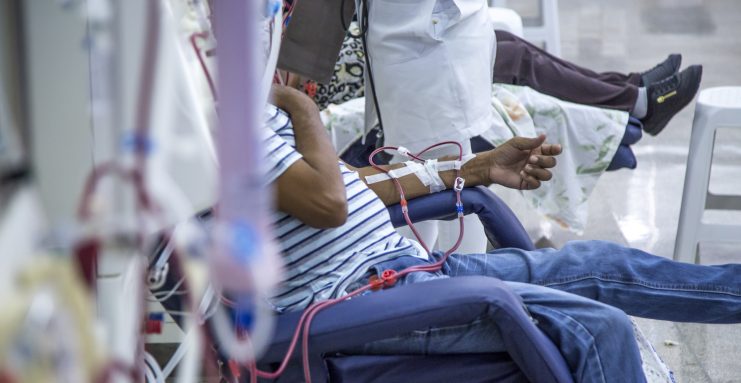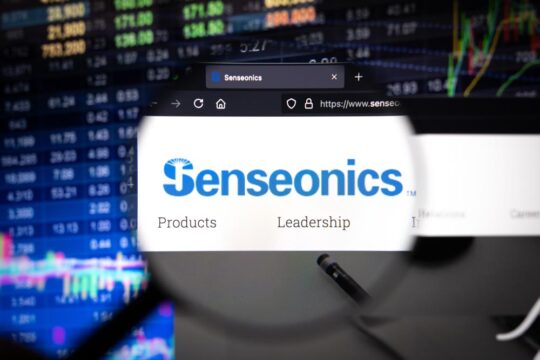Advertisment
DDW 2018: Treatment of perianal fistulising disease

Perianal fistulas remain a debilitating complication for CD patients, with high levels of morbidity and impact on quality of life. Several abstracts and posters at DDW 2018 addressed the clinical management of perianal fistulas in CD.
Written by Maria Dalby.
Mesenchymal stem cell therapy is a novel concept in the treatment of perianal fistulas in CD that has shown significant therapeutic benefit in terms of rapid onset of remission and durable response over 24 weeks.1,2 A poster presented by a study team led by Professor Julián Panés from Barcelona investigated the time to clinical remission and relapse by week 52 after treatment with Cx601 (darvadstrocel), a novel expanded allogeneic adipose-derived mesenchymal stem cell local therapy. This analysis comprised 212 patients who participated in the ADMIRE study and were randomised to either Cx601 or standard of care and followed for 52 weeks. Patients in the Cx601 arm had significantly shorter time to remission (6.7 weeks versus 14.6 weeks in the standard of care arm [HR at 52 weeks 0.58; 95% CI 0.42, 0.80]) and numerically longer time to relapse (HR 0.47; 95% CI 0.22, 1.00). The clinical remission rate was significantly higher in the Cx601 arm at the first assessment at six weeks from baseline (51.4% versus 34.3% in the standard of care arm), and this difference persisted at week 52 (57.0% versus 40.0%, respectively). The rapid remission achieved with Cx601 was seen across subgroups irrespective of concomitant therapy (poster Sa1724).
A team based at the University of Verona and the San Matteo hospital in Pavia in Italy conducted a systematic review and meta-analysis of clinical trials and observational studies with local mesenchymal stem cell therapy for perianal fistulas in CD. The team identified 23 studies comprising a total of 663 patients; of these, four studies with 483 patients were randomised controlled studies (RCTs). Overall, patients treated with mesenchymal stem cells had clinical and radiological response rates of 80% and 83%, respectively; in the RCTs, the response rate was 64% in the stem cell arms versus 37% in the placebo arms. The investigators concluded that local injection of mesenchymal stem cells appears safe and effective for the treatment of fistulising CD (poster Mo1653).
To date, the main focus of biologic treatment of perianal fistulas in CD has been on anti-TNF therapy. Infliximab has been shown to have significant therapeutic benefit over placebo in terms of reducing the number of draining fistulas from baseline3 and has since been approved for this indication. Novel biologics have been less extensively documented; at DDW 2018 a team from Weill Cornell Medical College presented a retrospective chart review of CD patients with perianal fistulas who received either infliximab or vedolizumab from 2008 to 2017. A total of 100 patients were included in the analysis (61 treated with infliximab and 39 treated with vedolizumab). The results showed that 23% of patients treated with vedolizumab achieved fistula closure within a mean time of 5.7 months. While the closure rate was lower and time to closure longer with vedolizumab compared with infliximab, the investigators recommended that vedolizumab should be evaluated in larger prospective studies in this patient population (poster Sa1725). A systematic review and network meta-analysis of study data on perianal fistula closure performed at McMaster University in Ontario in Canada found no significant difference in short-term complete closure rate between infliximab, adalimumab, certolizumab, ustekinumab, and vedolizumab, or between either agent and placebo (poster Sa1739).
References
1. Panes J, Garcia-Olmo D, Van Assche G, et al. Expanded allogeneic adipose-derived mesenchymal stem cells (Cx601) for complex perianal fistulas in Crohn’s disease: a phase 3 randomised, double-blind controlled trial. Lancet 2016;388:1281-90.
2. Panes J, Garcia-Olmo D, Van Assche G, et al. Long-term Efficacy and Safety of Stem Cell Therapy (Cx601) for Complex Perianal Fistulas in Patients With Crohn’s Disease. Gastroenterology 2017.
3. Present DH, Rutgeerts P, Targan S, et al. Infliximab for the treatment of fistulas in patients with Crohn’s disease. N Engl J Med 1999;340:1398-405.





